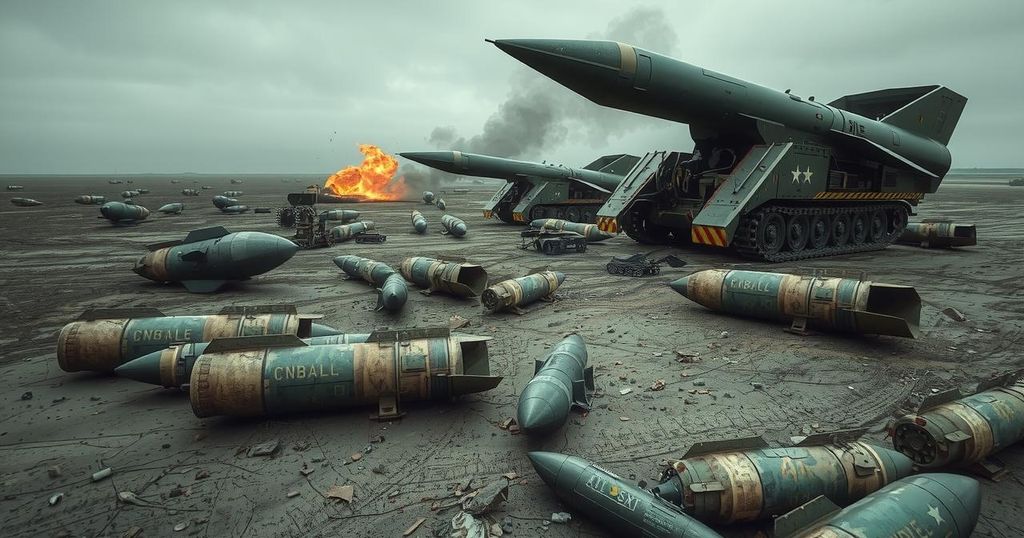World news
ASIA, BLOOMBERG, BUDANOV, DEFENSE, DONALD TRUMP, DONETSK, ENERGY INFRASTRUCTURE, EUROPE, EUROPE/ASIA, KI, KIM JONG - UN, KIRILL BUDANOV, KOREA, NORTH, MILITARY, MILITARY SUPPORT, NATIONS, PUTIN, PYONGYANG, RUSSIA, RUSSIA-UKRAINE WAR, SERGEI LAVROV, SERGEI SHOIGU, TRUMP, UKRAINE, UNITED, US, VLADIMIR PUTIN, WAR
Michael Grant
0 Comments
North Korea Supplies Military Arms to Russia in Ukraine Conflict
- North Korea supplies 40% of Russian artillery ammunition for Ukraine.
- Budanov notes 60% of military losses are due to North Korean missiles.
- The Russia-North Korea partnership deepened following Putin’s Pyongyang visit.
- Thousands of North Korean troops are reportedly aiding Russia in Kursk.
- UN reports June had the highest civilian casualties in three years.
North Korea’s Military Support to Russia is Rising
In a striking revelation, Kirill Budanov, the head of Ukraine’s military intelligence, has warned that North Korea is playing a crucial role in supplying Russia with artillery ammunition for its ongoing conflict in Ukraine. According to Budanov, a staggering 40 percent of the ammunition used by Russian forces comes from North Korea, which includes not only shells but also ballistic missiles and complete artillery systems. This alliance marks a new chapter in international military cooperation, one that somehow manages to aid Pyongyang in easing its international isolation in exchange for advanced technology and financial support from Russia.
Consequences of North Korea’s Involvement
Budanov did not hold back in his assessment, indicating that the impact of these North Korean missiles is profound, as they accounted for around 60 percent of the losses suffered by his troops in the last three months. He reiterated that North Korea is utilizing its vast reserves to turn out military supplies at all hours, which points to an industrious production effort that shows no signs of slowing down. This growing partnership between Russia and North Korea has become increasingly evident since Vladimir Putin’s first visit to Pyongyang in over two decades last June, where a Strategic Partnership Agreement was formalized, indicating a significant shift in defense cooperation.
Implications for International Relations
The extent of North Korea’s military support doesn’t stop at providing arms. Budanov claimed that thousands of North Korean troops have also been dispatched to support Russian efforts specifically in the Kursk region. Moreover, Western intelligence is alarmed, estimating that North Korea has sent millions of shells to Russia. High-profile visits from Russian officials to Pyongyang, including Foreign Minister Sergei Lavrov and Security Advisor Sergei Shoigu, further indicate the strengthening ties between these two nations. With a potential arms route being fortified, it has never seemed more crucial for international leaders to strategize a route to peace and a possible ceasefire agreement, which Budanov believes could be achieved, considering Ukraine, Russia, and the US are all on board.
Future Outlook and Diplomatic Efforts
As the conflict continues, the United Nations reported a disturbing spike in civilian casualties, marking June as one of the deadliest months in years with over 200 fatalities. Meanwhile, despite ongoing military operations, Budanov is cautiously optimistic, stating that while Russia is unlikely to occupy all of Donbas by the close of the year, their strategy to establish a buffer zone remains in play. On July 9, Russian drones launched an unprecedented attack, further complicating the landscape in Ukraine. American President Donald Trump, recognizing these developments, has ordered a reinstatement of arms deliveries, particularly focusing on air defense systems, concerned over the grim implications of Russia’s actions. Budanov finds American support vital and enduring, predicting that a centralized agreement for ceasefire could be drafted by year-end if diplomatic efforts are properly channeled.
In this evolving situation, the military cooperation between North Korea and Russia threatens the geopolitical stability in Ukraine. Budanov’s warnings highlight a serious escalation in conflict, with substantial implications for civilian safety and international response to military support. As discussions of a ceasefire become more integral, global leaders must navigate complex diplomatic waters to achieve peace and stability in the fractured region.




Post Comment